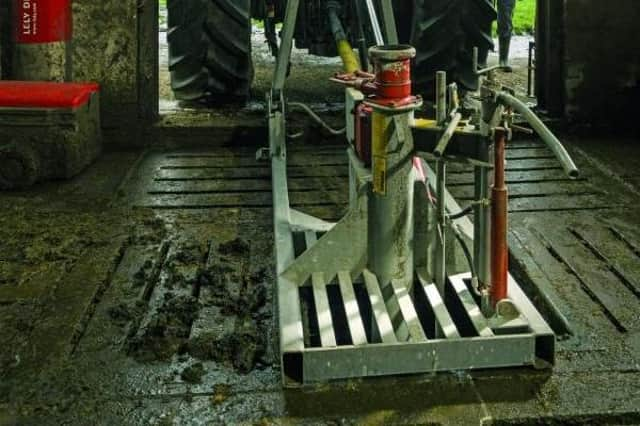DAERA’s Sustainable Utilisation of Livestock Slurry competition exceeds expectations


This Small Business Research Initiative (SBRI) competition was jointly funded by the Department for the Economy (DfE) and DAERA, with the competition process being managed by the Strategic Investment Board (SIB). The six successful companies were asked to propose innovative solutions and were awarded £100k each to produce practical and technically feasible solutions applicable to Northern Ireland.
The aim of the project was to develop self-sufficient models to address the core aim of nutrient separation by processing of livestock slurry (particularly from cattle and pigs), to reduce surplus phosphorus within the NI agriculture system and ensure efficient recycling of organic nutrients.
The six companies were:
Advertisement
Advertisement
- B9 Solutions Limited, Larne, in collaboration with ReCon Waste Management, Portadown;
- Renewables United, Banbridge;
- The Centre for Competitiveness/LUCERNE, which is a Mid Ulster collaboration between Dale Farm, CEMCOR, Tobermore Concrete and the RSC Group;
- Blakiston Houston Estate Company, Dundonald;
- Carbon Technologies Group, Newtownabbey; and
- Natural World Products, Belfast.
The suppliers developed practical and economic models where livestock slurry can be separated, with minimal nitrogen and methane losses, to produce feedstock for renewable energy, in a bio secure manner. This feedstock can then be used for biogas or biomethane production via anaerobic digestion (AD) to decarbonise the electricity and gas networks in NI. Research was also focused on technologies to extract nutrients from the process to produce replacements for chemical fertilisers or to produce compost for use in NI or for export.
Each supplier delivered comprehensive final reports and presentations of their findings to DAERA officials. At a Project Closing event, suppliers presented their key findings and proposed next steps to senior officials from DAERA, DfE, NI Water, SIB and Invest NI.
Advertisement
Advertisement
The outcome of Phase 1 has been a very positive one, with all six companies outlining practical and innovative technological solutions for sustainable utilisation of livestock slurry in NI and proposed next steps to move this from feasibility to reality and at a scale to make a tangible impact. All solutions will require close engagement with farmers and AD plants, as well as the development of export markets for the end products.
Officials in DAERA, working with colleagues in AFBI, are engaging with SIB on how best to move from the proof of concept stage to the development of demonstration plants to focus on nutrient separation from slurry and digestate. These solutions could assist in reducing the need for chemical fertiliser in NI, while removing excess nutrients and producing low carbon energy along with other low carbon products.